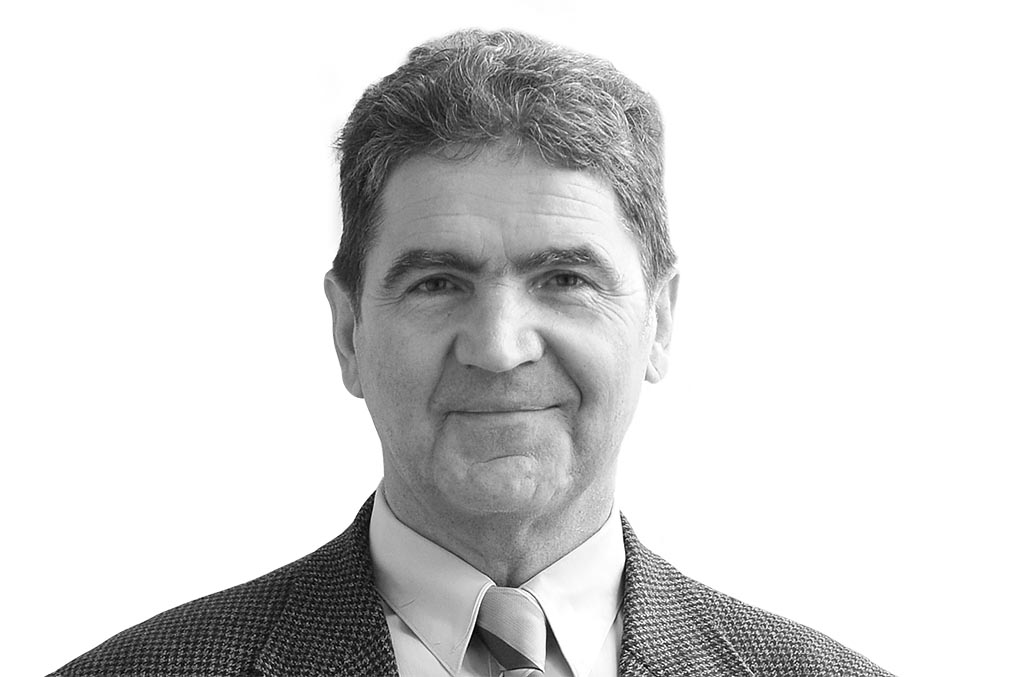By: Dr Janez Juhant, emeritus professor of philosophy, publicist and civil society activist
“One fall (in 1935 or 1936), a few of us gathered with him (Ehrlich) at St. Višarje for some spiritual exercises, to which prof. Ehrlich always joined reflections on Slovenian issues. On Sunday, when God’s journey to St. Višarje ended, we also participated with residents in the final procession, which he led. According to custom, he carried the statue of the Mother of God from Višarje during the procession. The procession goes around Višarje hill. When we came to the corner, from where there is the most beautiful view of Žabnica, Trbiž, the Carinthian mountains, Ture, far in the Kanalska valley to the Friuli plain and south to the Julian Alps, we knelt down and prof. Ehrlich – kneeling, with the Mother of God of Višarje in his arms – prayed for the Slovenian nation…”
This is how they thought with prayer and acted selflessly for Slovenia just under a hundred years ago in the circle of Lambert Ehrlich, probably the most strategically and politically knowledgeable Slovene at the time. As one of the few nationally thinking and active Slovenes, he also influenced Korošec’s ideas about the sovereignty of Slovenia in Yugoslavia through the guards. At the time, Anton Korošec fought more or less successfully for Slovenian interests in Belgrade, and then wrote in opposition and exile the Slovenian punctuation, which was published by Il Piccolo from Trieste during the dictatorship. Korošec considered Ehrlich to be the most talented Slovenian priest, who had fairly comprehensive views on an independent Slovenia. Right at the beginning of the Second World War, he defined them in the debate on the Slovenian problem. He writes about independent Slovenia, a sort of eastern Switzerland, or Slovenia as the centre of the union of states between the Baltic and the Aegean. The first was realised with independent Slovenia, the second with United Europe in the European Union, which also included Slovenia. These ideas of an independent Slovenia gave impetus to a hundred years of planning, which Demos under Jože Pučnik was able to realise, as we remembered these days on the 19th anniversary of his death. Both of them, Ehrlich and Pučnik, laid the foundation for the country of Slovenia.
Candidates for the president of the republic should start from these foundations. Unfortunately, when confronting the candidates in the media, we follow many things that are far from such a statesmanlike attitude. Journalists inadequately confront the candidates with national issues and the life and survival of the Slovenian nation. Unfortunately, some people do not even listen to the serious problems of the country, even though they want to lead it. Some are still burdened with dubious “deep state” deals, which shows that so far, they have been more concerned with their own business than with caring for the well-being of the entire community. This would otherwise be nothing wrong, because if a person knows how to take care of himself, he will also know how to take care of others. The problem is the opacity of transactions, which is far from the concern of an ordinary citizen for his daily bread. The state, ethical, and political foundations, and standards that such candidates refer to do not give us, the voters, a credible certificate, as they are far from the foundations of justice and fairness. Some even dream of an unrealisable socialism that enables them to have a political career and a livelihood, but they have no basis for the concerns of an ordinary citizen. And even when they now participate in the government, which they are full of, they take from the poorest that they had until now, e.g., a better salary that was given to them by the previous government and was abolished.
Dr Anže Logar and Janez Cigler Kralj mainly perform statesmanlike, wherein Logar is very convincing from a strategic and political point of view, also due to his position as foreign minister in the previous government, despite the fact that journalists are still trying to put him under the label of Janez Janša, who is supposed to be an electoral scare to voters. If I return to the national tradition, Logar embodies it well in his performances and I believe that he can step into Pahor’s shoes. Of course, fewer, and fewer Slovenians, even Christians, who still believe, and I hope they know that evil spirits are chased away by prayer and fasting, no longer believe in the same way as our mentioned ancestors. Let’s remember, however, that even modern social theorists talk about the merging of mysticism and politics, simply: Only a deeply rooted person will be able to handle today’s demanding socio-political demands.
Whether Slovenians will recognise the right candidates also depends on media confrontations. With this government’s unstated and downright heart-breaking policies, I am sure that we want to elect a president that we can all rely on. The rhetoric of the candidates, that they will only see how they will act in a unifying way, are similar to the promises of this government, which promised unification, but now only divides. It announced help to the poor, but now it is offering pensioners 5 euros. This government appropriates everything and excludes others, so it cannot lead us successfully, but only into a political narrow and even dead end, from which it will be difficult to find a way into the future. So, it is all the more to wish that at least the new president of the country would give more to Slovenia as a community of all citizens, to connect and represent us all, but not to exclude us. Challenging times call for people with insight, knowledge, diligence, courage and dedication to the nation and the country of Slovenia.

